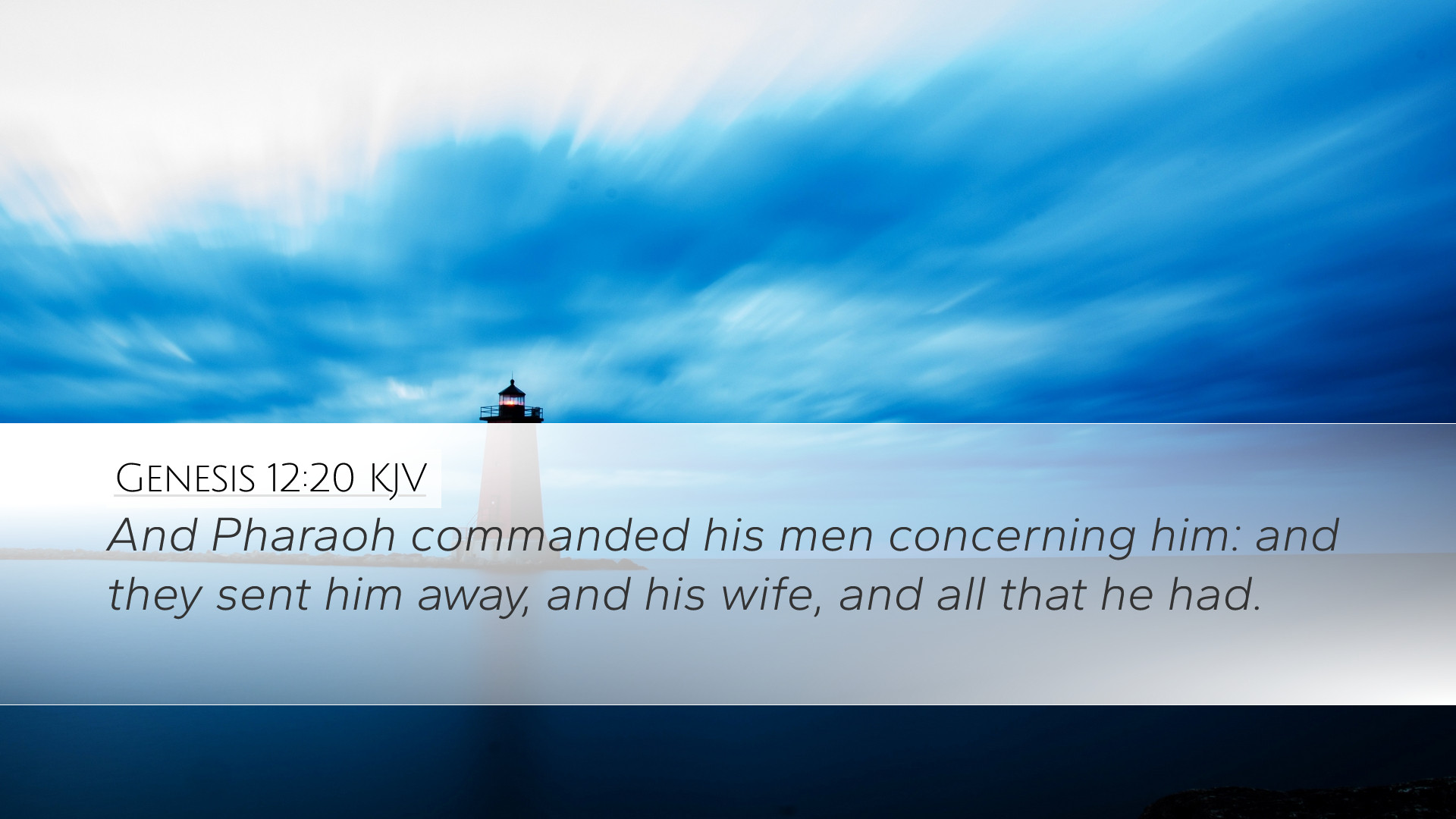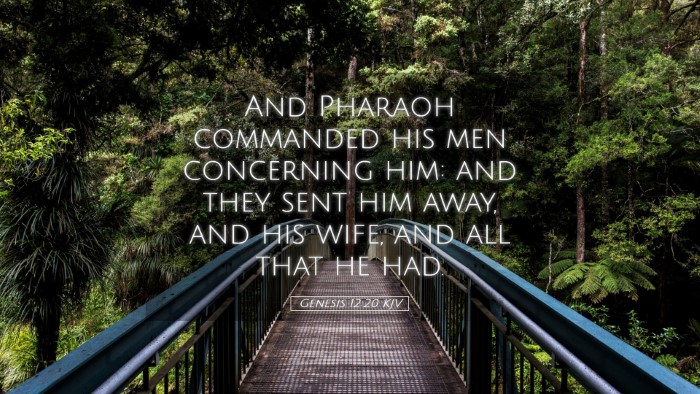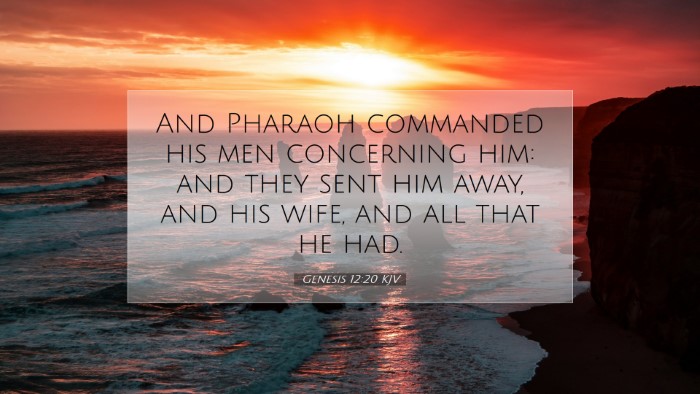Commentary on Genesis 12:20
Verse Overview: Genesis 12:20 states, “And Pharaoh commanded his men concerning him: and they sent him away, and his wife, and all that he had.” This verse comes at the conclusion of a significant narrative involving Abraham, Sarai, and Pharaoh, focusing on themes of faith, deception, and divine intervention.
Context and Background
Abraham's journey to Egypt marks a critical moment in his life as he faces a famine in the land of Canaan. Historical and cultural contexts are essential for understanding the implications of his decisions. The act of going to Egypt symbolizes both a physical and spiritual trial, with various commentaries offering insights into these dimensions.
Theological Insights
- Faith and Trust in God: The backdrop of Abraham's journey demonstrates fluctuating faith as he resorts to deception regarding Sarai’s identity out of fear for his own life. Matthew Henry emphasizes that while Abraham still receives God’s blessing, his actions illustrate a lack of complete trust in divine protection.
- Consequences of Deception: Albert Barnes notes that Abraham’s lies bring complexities into his life, showcasing the immediate consequences of deceit. This event serves as a reminder that while God’s promises are enduring, human actions can complicate the path to their fulfillment.
- God's Faithfulness Amid Human Failure: Adam Clarke points to God’s unwavering faithfulness in preserving Abraham, highlighting that God's protective hand remains over His covenant people, even when they falter. This reflects the overarching narrative of grace found throughout Scripture.
Pastoral Reflections
For today’s pastor, this passage reveals the nature of God’s covenant with His people. Despite Abraham’s failings, God’s purpose prevails, providing a strong message of hope and encouragement. Leaders are reminded that pastoral care must include grace, as even the most faithful may struggle with fear and doubt.
Character Studies
- Abraham: Seen here as a complex figure, reflective of both courage and cowardice. His journey to Egypt raises questions about faithfulness and conditional trust in God's promises.
- Sarai (Sarah): A pivotal character whose status as Abraham's wife brings complications. Her role adds depth to understanding the societal dynamics and views on women during this period.
- Pharaoh: Illustrates the power dynamics and moral integrity of leaders. Despite receiving misrepresentation, he responds with justice and benevolence, showcasing that awareness and moral clarity can be found outside the covenant community.
Practical Application
Contemporary believers can draw lessons from Abraham's journey, particularly the importance of trusting God in times of uncertainty. The subtle yet profound lessons in this narrative encourage self-reflection on personal faith journeys and the need for integrity in dealings with others.
Conclusion
In sum, Genesis 12:20 encapsulates a moment of transition and tension in Abraham's life, rich with lessons that resonate through ages. By examining Abraham's decisions, his relationships, and the overarching narrative of God’s faithfulness, one gains valuable insights applicable to both personal and communal faith experiences.
This passage remains a reminder that every believer is a work in progress, under divine guidance and care, culminating in a story that extends beyond individual failings to highlight God’s sovereign purpose.


